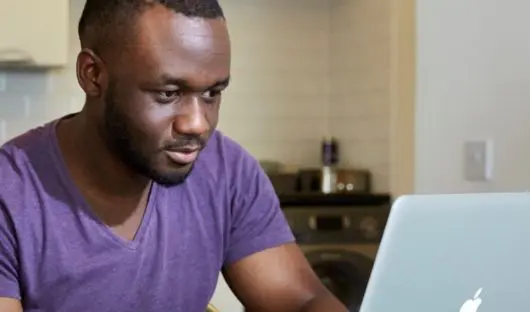How to manage your bills if you have cancer
Lots of people find financial planning hard. This can be even harder if you or your child has cancer. But having a plan can help ease some of the stress you might be feeling. Here are some tips on how to manage your bills.
Common challenges of managing bills with cancer
It can be hard to manage your bills if you or a loved one has cancer. You might be earning less while spending more on travel. Feeling stressed or tired might also mean you do not want to deal with bills. This might mean you fall behind on payments and get into debt. Get advice on how to manage debt here.
It is normal to feel overwhelmed. But help is out there. If you are employed you have rights at work. Get advice on speaking to your boss and your rights here.
You might also be able to claim benefits. If your child has cancer you may be able to get Disability Living Allowance (DLA). Over 16s may be able to apply for a Personal Independence Payment (PIP). Get more advice on benefits from our free Welfare Advice Service here .
We offer a one-off £100 Registration Grant to help with costs like travel and food bills. You can also search grants to help with the cost of cancer using the Turn2us Grants Search tool here.
The importance of effectively handling your bills
Try to keep on top of your bills when you or a loved one has cancer. Taking a bit of time to set up a budget or work out what needs to be paid first will help you feel less stressed in the long run. This will give you more time to focus on treatment and recovery.
Can I reduce my bills if I have cancer?
There are some bills you can reduce if you have cancer. These might include housing costs, council tax, mortgage payments, service charges and energy bills.
Speak to your provider as soon as you can to start cutting bills or getting extra help.
Housing costs
The last thing you want worry about when you or your child has cancer is keeping a roof over your head. The good news is there is support to help you with housing costs. You may be able to get help with your rent, mortgage payments or council tax. There are also grants to help make changes to your home. Find out more here.
You might also be able to lower your mortgage payments and swap to lower tariffs for things like energy bills.
Rent when you have cancer
You might be able to get benefits to help pay your rent if you have cancer. This includes Universal Credit. You should apply as soon as you can. Universal Credit can only be backdated for one month.
If you do miss a rent payment you should get in touch with your landlord. You might be able to pay off what you owe over a set period. Make sure you are realistic about what you can afford so you do not get into more debt.
You do not have to tell your landlord about your cancer, but being honest with them might stop or delay them trying to evict you if you do miss payments.
You and your landlord should also agree on how much you owe. Ask your landlord for a statement of your rent.
Mortgages when you have cancer
If you are finding it hard to pay your mortgage you should speak to your lender as soon as you can. All mortgage lenders have a code of practice. This means they should try to find ways to help you. This might mean reducing or stopping your payments for a short time.
You might have taken out mortgage insurance when you bought your home. If you did, check your policy to see if it covers:
- Paying your mortgage payments while you are off work
- Paying off your mortgage in full
You might also be able to get Government support to cover the interest on your mortgage. To get this support you usually need to get one of these benefits:
- Income Support
- Income-based Jobseeker’s Allowance (JSA)
- Income-related Employment and Support Allowance (ESA)
- Universal Credit
- Pension Credit
Find out more about the Support for Mortgage Interest (SMI) scheme here.
Service charge for leaseholders
If you are a leaseholder, you might pay service charges. You may be able to get help to pay these charges if you get certain benefits. Contact your local benefits office for more information.
If you live in Northern Ireland, contact the Northern Ireland Housing Executive.
Council tax when you have cancer
Council tax reduction schemes can help you pay the bills if your income drops. This could be because you are having cancer treatment or caring for someone who is. How it works depends on where you live in the UK.
In England and Wales every council has its own scheme. This means what you get depends on where you live. You can find your local council’s contact details here.
In Scotland, there is a national council tax reduction scheme which means everyone gets the same. But you still need to apply via your local council.
In Northern Ireland, if you are a tenant, call the Housing Executive on 03448 920 902, or use textphone 18001 03448 920 902. If you own your home, call the Land and Property Services on 0300 200 7801, or use textphone 18001 0300 200 7801.
Some areas also offer extra support with council tax. This is sometimes called a discretionary fund. Contact your local council to find out what is on offer.
Housing benefits for cancer patients
Universal Credit has replaced many of the ‘legacy benefits’. This includes housing benefit to help pay your rent. It will be fully rolled out in 2024.
You might also be able to claim Discretionary Housing Payments (DHPs). This can be used to top-up your Universal Credit payment or your housing benefit if you are still getting legacy payments. Find out how to apply for DHP in England and Wales here. Find out how to apply for DHP in Scotland here.
In Northern Ireland you can apply for extra support via the Northern Ireland Housing Executive.
Utility bills
Utility bills for things like gas, electricity and water are on the rise. You might also find your bills increase because you are at home more or need to have the heating up higher.
There are things you can do to help manage these costs. They include:
- Finding out what help is on offer from your supplier
- Switching to a cheaper supplier
- Applying for government schemes to help with the cost.
Most energy providers have charities customers can apply to for grants or emergency fuel credit.
Gas and electricity heating bills
If you are worried about paying your gas and electricity bills the first thing you should do is talk to your supplier. They might be able to help you by:
- Putting you on a cheaper tariff
- Offering you a grant to help pay your bill
- Letting you spread the cost of payments
You might decide you want to switch to a new provider which offers you a cheaper tariff. If you do this you should:
- Compare several tariffs to make sure you are getting the best deal
- Make sure you will not be worse off by switching because of extra charges
You might decide you want to reduce your energy bills to help keep costs down. You can do this by making small changes like switching to energy-saving lightbulbs and draught-proofing windows and doors.
You could also make bigger changes like insulating your loft or upgrading your boiler but these can cost a lot of money. If you want to make changes like this, check online to see if the Government is offering any support schemes to help cover the cost.
Water bill
Water companies cannot switch off your water if you cannot pay your bill. But it is still a good idea to talk to them if you are finding it hard to pay.
Some have schemes to help you pay your bill. Others have social tariffs. These reduce bills for people on low incomes or who have health conditions which mean they might need to use more water.
Contact your water company to find out what help is on offer.
Phone bill
Your phone can be vital if you or your child has cancer. You might use it to manage appointments or stay in touch with friends and family. Ways to help reduce your phone bill include:
- Shopping around to make sure you are getting the best deal
- Using a mobile instead of your landline to call other mobiles or during peak hours
- Using online services like WhatsApp to make calls and message
- Switching to a pay-as-you-go tariff
Some numbers cost more to call than others. These often begin with 0870, 0845 or 0844. The saynoto0870.com website offers cheaper options for many of these numbers.
The internet
Being online can help you manage appointments, find useful information and access support. But data can be expensive.
Social tariffs offer cheaper broadband and phone packages to people on low incomes. If you or someone in your household claims Universal Credit, you could switch to any of the tariffs available.
Major providers also offer social tariffs to people on Pension Credit, Employment and Support Allowance, Jobseeker’s Allowance and Income Support.
Some providers include additional benefits like Personal Independence Payment and Attendance Allowance.
Find out more and search tariffs via the Ofcom website here.
Other bills
Some bills need to be paid faster than others. It can help to make a list of all your bills and work out which need to be paid first. For example, child maintenance is a priority while credit card bills are not.
Get more advice on how to prioritise your bills here.
Car finance payments
Hire purchase agreements like those used to buy cars are not a priority bill like rent or energy. But you need to consider how not paying your bill will affect your life.
If you need your car to get to treatment you should move this bill towards the top of your list. You might also be able to talk to the lender and agree to make smaller payments over a longer period.
If you receive the higher rate mobility part of the Personal Independence Payment (PIP) or Disability Living Allowance (DLA), you might be able to join the Motability Scheme. Check your eligibility here.
House insurance
Home insurance makes sure you are covered for things like flooding, fire or theft. There are ways to help keep the cost of your home insurance down. These include:
- Shopping around for the best deal
- Cutting cover you do not need
- Paying each year instead of monthly to avoid interest
- Avoiding over-insuring by working out the value of your contents and the cost of rebuilding your home
- Increasing your excess
- Making your home more secure by installing an alarm or updating locks
If you decide to increase your excess, you may need to pay more if you do end up making a claim.
Transport costs
There are lots of things you can do to help keep travel costs down. Start by speaking to your hospital. You might be able to get care closer to home or use a transport scheme. You can also claim back travel costs if you receive some benefits.
If you are driving, you may be able to save on vehicle tax if you receive Disability Living Allowance (DLA) or Personal Independence Payments (PIP). If you are using public transport, look at railcards or free bus travel.
Find out more about extra travel costs and how to deal with them here.
Private medical bills
You may decide to get private medical treatment. This might be because a treatment is not available on the NHS or because you want a second opinion. But private treatment can be costly if you do not have private medical insurance.
You should also think about whether you will be able to meet unexpected costs. For example, if you need to stay in hospital longer than you thought.
Private healthcare providers are responsible for setting their own costs. You should ask what charges will be before starting treatment.
If you cannot pay your medical bills you can contact your local Citizens Advice Bureau.
How to communicate with service providers
Talk to your service provider as soon as you can. They will have a duty of care or codes of practice which mean they should try to help you.
It is a good idea to get organised before speaking to your provider by:
- Working out what you can afford to pay
- Researching what help you might be able to get
- Deciding what you want to ask for
- Writing down a list of questions
- Making a note of who you have spoken to and when you have spoken to them
Try to be as honest as you can and come up with a realistic plan.
Who to talk to if you’re struggling with your bills
If you are struggling with bills you are not alone. Our free welfare advice service can help make sure you are getting all the support you are entitled to.
Other people to speak to include:
- Your healthcare team
- Your Young Lives Vs Cancer social worker
- A welfare rights advisor at your hospital
- Citizens Advice
- Jobcentre Plus staff
The Money Helper website offers advice on budgets, benefits and coping with money troubles.
If you are worried about becoming homeless, Shelter offers support:
- In England, call 0808 800 4444 or visit shelter.org.uk
- In Scotland, call 0808 800 4444 or visit shelter.org.uk
- In Wales, call 08000 495 495 or visit org.uk
- In Northern Ireland, call 028 9024 7752 or visit org


